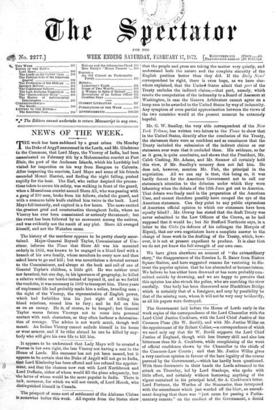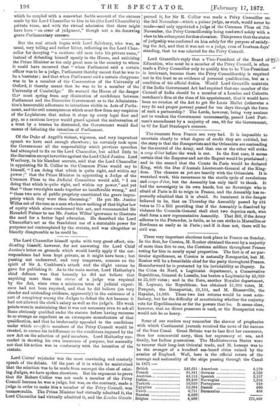The Government laid before the House of Lords early in
the week copies of the correspondence of the Lord Chancellor with the Lord Chief Justice Cockburn, with the Lord Chief Justice of the Common Pleas (Sir W. Bovill), and with Mr. Justice Wines on the appointment of Sir Robert Collier,—a correspondence of which we need only say that Sir W. Bovill supports the Lord Chief Justice of England, though with less literary skill and also less bitterness than Sir A. Cockburn, while complaining of the want of official confidence shown by the Chancellor to the chiefs of the Common-Law Courts ; and that Mr. Justice Wiles gives a very cautious opinion in favour of the bare legality of the course pursued by the Government,—which has hardly been questioned. With these documents in their hands the Lords advanced to the attack on Thursday, led by Lord Stanhope, who spoke with little effect, and certainly without borrowing anything of the vigour contained in his principal brief, Sir A. Cockburn's letter. Lord Portman, the Warden of the Stannaries, then interposed with the amendment which just warded off the blow, an amend- ment denying that there was " just cause for passing a Parlia- mentary censure" on the conduct of the Government, a denial -which he coupled with a somewhat feeble accoudt of the excuses made by the Lord Chancellor to him in his (the Lord Chancellor's) private room, and with the virtual. admission that there might have been an error of judgment," though not a sin deserviag grave Parliamentary censure.



































